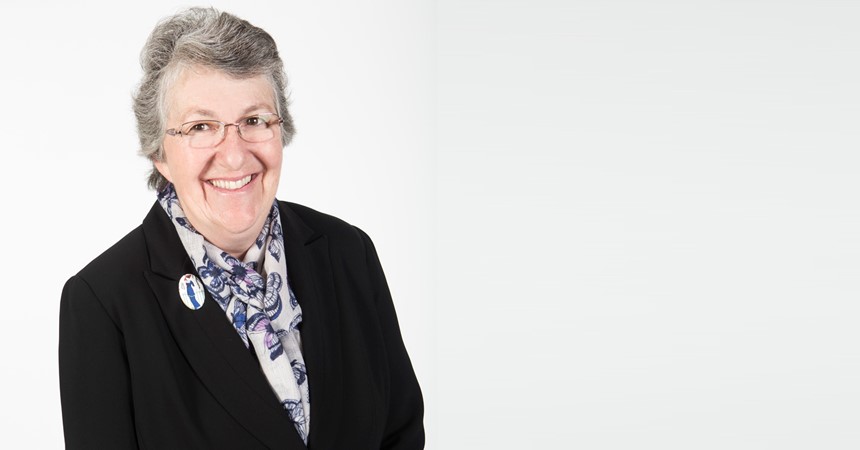I think this captures my past week, and probably most weeks, in which I encounter people and their respective communities. In the past two weeks I have supported the Diocesan Council for Ministry with Young People (DCMYP), which has met in six locations across the diocese, to listen to the voice of about 60 people who shared their dreams and concerns regarding the 2018 Youth Synod – Young People, the Faith and Vocational Discernment. We have been asked by the Australian Catholic 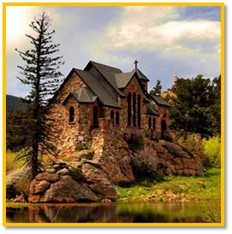 Bishops Conference (ACBC), to collate a report from our diocese around the questions asked in the Preparatory Document from the Vatican. Some young people have joined these focus groups, and what has become apparent, from them and from others who gathered, is that our church is not relevant to them; this sentiment mostly arises from the lack of understanding about what church is
Bishops Conference (ACBC), to collate a report from our diocese around the questions asked in the Preparatory Document from the Vatican. Some young people have joined these focus groups, and what has become apparent, from them and from others who gathered, is that our church is not relevant to them; this sentiment mostly arises from the lack of understanding about what church is 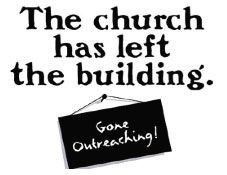 and does. I am surprised, that even after all the years since the Second Vatican Council, the church is still seen as the building where some people go to pray and worship. There seems to be little connection with the church as a people of God who gather in communio and go out on mission. Interestingly, our schools were not seen as connected to the Catholic Church, but neither was CatholicCare, St Vincent de Paul, the Refugee Hub, chaplaincy, health, aged care or any good works done on behalf of the Catholic Church. It was as though, church was limited to the building, worship and ‘old people’. Some reflections indicated that it is for grandparents and for ‘old’ priests.
and does. I am surprised, that even after all the years since the Second Vatican Council, the church is still seen as the building where some people go to pray and worship. There seems to be little connection with the church as a people of God who gather in communio and go out on mission. Interestingly, our schools were not seen as connected to the Catholic Church, but neither was CatholicCare, St Vincent de Paul, the Refugee Hub, chaplaincy, health, aged care or any good works done on behalf of the Catholic Church. It was as though, church was limited to the building, worship and ‘old people’. Some reflections indicated that it is for grandparents and for ‘old’ priests.
However, I did not experience this disconnect when I attended Mass at both Toronto and Muswellbrook parishes on the weekend.
During the Mass at Toronto, Bishop Bill installed Brendon Mannyx as the Parish Leader, and Fr Geoff Mulhearn as the Priest Supervisor. The church was abuzz with community noise as I arrived, people clearly pleased to see and greet each other, with lots of children and their families from the parish primary school actively engaged in the Mass. Soup, damper and sweets were provided by the P&F after Mass for all to enjoy. Bishop Bill asked Brendon’s wife, Claire, and his children, for their consent to support Brendon in his ministry as Parish Leader, along with the support of the parish community, the school, the Parish Pastoral Council, the Parish Finance Council and Parish Ministry Teams. Both Brendon and Fr Geoff recited The Oath of Fidelity in assuming an office to be exercised in the name of the Church. This was indeed a very powerful statement and I note Brendon’s reflection on this from the parish bulletin:
I shared with Fr Geoff that if felt a bit like saying my wedding vows. I was going to be making this promise in the church before the community and before God. And I remembered those days before our wedding and thinking, ‘This is a big thing. How will I ever live up to this commitment?’ I think many of us feel that way about those things in life that are really important – a career, starting a family, undertaking a new project, living a vocation – each requires a step of faith, a moment of trust.
When we step out in faith, we don’t step out alone. God commits Himself to us. God knows our hearts. God knows our weaknesses. God has promised to be a part of this experience, to work in us and through us for our own good. In today’s reading we hear, ‘The Spirit comes to help us in our weakness.’ We need not be afraid. God knows our limitations, and still God chooses us. God calls us to be a part of what He is doing. God wants us with Him.
That doesn’t mean the journey is easy. It is often those things in life that are worth doing that are the most difficult. We struggle. We fall. We get back up and keep going. I don’t imagine that I am alone in that experience. It’s what I discovered in the first years of married life and even now. There is a cost. It requires effort. And yet, there was always, and still is, this sense that there is another who is a part of this commitment. This ‘Other’ that would give strength during difficult times, bring peace in the midst of the storm, soften hearts to forgiveness and open hearts to love. This Other is our God made present in Jesus Christ. Jesus who listened when I needed to pour out my heart. Jesus who gave comfort when the challenges seemed too great. Jesus who loves me just as I am, yet calls me to be even more.
It is this Jesus who brings us into the fullest experience of the life and love of God.
Our God is walking beside us. Our God is inviting us to new experiences. Our God is calling us beyond ourselves.
Our God is calling us to life.
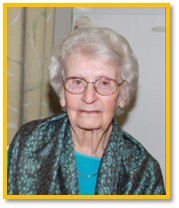 I was also at Toronto for the funeral of Jess Sobb, a lady of great faith in her 100th year. Some of you may recall that her husband Jack, died last year. They were instrumental in the Ecumenical Way of the Cross which has been part of our diocesan way of life for fifty years. The parish funeral team along with Fr Geoff ensured she was given a great Catholic farewell.
I was also at Toronto for the funeral of Jess Sobb, a lady of great faith in her 100th year. Some of you may recall that her husband Jack, died last year. They were instrumental in the Ecumenical Way of the Cross which has been part of our diocesan way of life for fifty years. The parish funeral team along with Fr Geoff ensured she was given a great Catholic farewell.
And then, on Sunday at Muswellbrook, the parish was celebrating their St James’ Feast Day with parishioners joined by members of St James’ Primary School. After Mass they enjoyed each other’s company with sausages, sweets and drinks. The young people and their families were happy to be there and Fr Anthony was full of energy and joy. I had also been in Muswellbrook on Friday for the blessing and opening of Calvary Muswellbrook Retirement Community. This is a new 65 bed residential care facility with 22 independent living villas. What a lovely facility for those who are ageing and need the safety and security of Calvary.
Helene O’Neill, one of our Family Ministry Co-ordinators, frequently describes her role as bringing together faith, family, fun and food. This was indeed my experience in these parishes on the weekend and during the week.
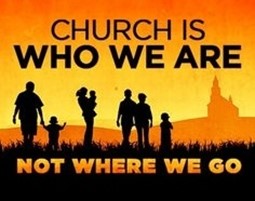 I wonder, based on my own experiences and these parish experiences, how we invite people to share the message that church and our faith are incarnational and therefore relational. Our faith invites us to a way of life, a movement in which we follow Jesus Christ, rather than an institution with its structures, leadership, clericalism, legalism, and abuse (words shared during the week of conversations). The institution is there to serve the way of life, a way based on faith, hope and especially love. It seems to me that people give their lives freely for this way of life, not for the institution.
I wonder, based on my own experiences and these parish experiences, how we invite people to share the message that church and our faith are incarnational and therefore relational. Our faith invites us to a way of life, a movement in which we follow Jesus Christ, rather than an institution with its structures, leadership, clericalism, legalism, and abuse (words shared during the week of conversations). The institution is there to serve the way of life, a way based on faith, hope and especially love. It seems to me that people give their lives freely for this way of life, not for the institution.
That is why Brendon Mannyx’s words are so profound. Here we have a young man with his wife and four young children who are prepared to give their lives, as a vocation, to serve God and the community. They are like the parables of the mustard seed and the yeast, which were part of this week’s Sunday Gospel. The kingdom of heaven abides in them, through them and around them. It is not some distant reality.
From my missal the following words speak powerfully:
Wheat among the Weeds. The world in which we live is a mixture of wheat and weeds. Wonderful acts of heroism and self-sacrifice occur alongside shocking acts of violence and abuse of power. In the midst of a world tainted by sin, we are called to live the values of the kingdom of God. This can be difficult, but the Spirit will help us in our weakness and God, the just and merciful judge, will reward us.
Those who gathered to share their thoughts as, or about, young people, noted that many young people live good lives without an intentional connection to faith or religion. They wish to make a difference to the world, with many describing themselves as humanists. As someone said, “the pilot light is lit but the flame has not been ignited”. Their inner spark is more influenced by the voice of the marketplace rather than by pastors, teachers, parents, grandparents, sacred texts and theologians. A 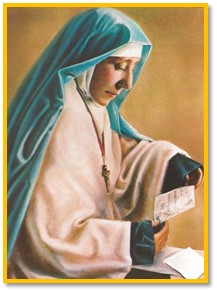 few people commented that we need to know what the Catholic Church is, and then we need to know how to transmit this.
few people commented that we need to know what the Catholic Church is, and then we need to know how to transmit this.
I’ll finish with the words, of Venerable Many Potter, Founder of the Little Company of Mary. These words were on the back page of the booklet for the blessing and opening of Calvary, Muswellbrook:
Looking back, I wonder now at many things. What brought this thought? How did I ever do what I scarcely dare think of? Though, I hope, with God’s grace, I would do ever what would give him pleasure. Still I was, as it were, carried here and there, not knowing what would come next. God certainly gave me invisible help.
It is hard to imagine that our present situation as church is a moment of grace, however, that is what it is. If we are able to ask such questions, then we are seeking that deeper meaning and understanding which as Mary Potter says, ‘not knowing what would come next’.
Let’s keep our prayer open to the spirit of the living God in us, through us, and around us.
